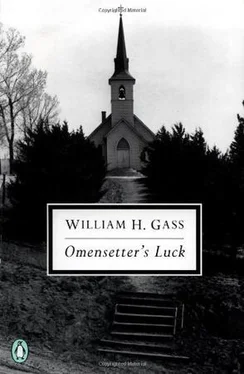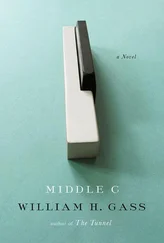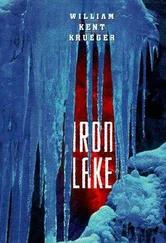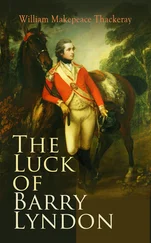There you are, you've been reasonably careful, you've kept your butt dry.
Henry spoke crossly and the carriage began to bounce him.
So the well went through to the land of the giants. Why not? Should he turn away from that — that callousness and that romance — to Mrs. Henry Pimber's firm prim mouth? her festive unlatching hands?
Omensetter's a natural-born politician, Olus Knox had said; he's what they call the magnetic kind. How inadequate that image was, Henry thought, when he could draw the heart right out of your side. Jethro Furber had been dramatic, as usual, painfully pinching his hands together. That man, he declared, lives like a cat asleep in a chair. Mat smiled gently: a view full of charity, he said; but Tott was laughing at the sight of Furber actually holding the pieces of himself together while he tried to condemn Omensetter's simply harmony and ease, as Henry guessed, with such a tranquil image. Yet how could Omensetter bear that terrible pair of eyes? Of — of course, Furber stuttered. A cat's a pretty thing, of course. How pretty a man? Is it attractive in a man to sleep away his life? take a cow's care? refuse a sparrow of responsibility? Tott shrugged. The cat's an unmitigated egotist, a slothful beast, slave to its pleasure. No need to preach, Tott said, nettled; cats were his idols. I've seen him, Furber swiveled to catch each eye, I've seen him — wading. The memory made Henry grin, slowing the buggy, Wading? He pictured Jethro standing in a puddle, trousers rolled. Tott claimed afterward that Furber filled a chair like a leaky bag of potatoes. No — no — an unsteady stack of packages, a teetery tower, an uncertain clutch — yes — a chair full of perilous parcels — or — in sum: a bunch of unbundling bundles. And sleep? sleep? Sleep is like Siam — he's never been there. It was true, Henry thought, they were utter opposites. Furber's body was a box he lived in; his arms and legs propelled and fended for him like a cripple's crutches and a blind man's cane; while Omensetter's hands, for instance, had the same expression as his face; held out his nature to you like an offering of fruit; and added themselves to what they touched, enlarging them, as rivers meet and magnify their streams. Wading. Amused, Henry formed the word again, and allowed himself to watch the woods fill in. Pasting kites, Furber'd said. Rolling hoops. Hollering in the street. Fur-burr (Henry answered now as he should have then), Fur-burr, you're just an old lady… yes — a lacy old lady. But the evening had filled in Furber too, and his fierce puritan intensity. For that, Henry was grateful. He knew he'd never get used to the hot dark white-faced little man, always and seldom the same, who claimed one Sunday that the Lord had made him small and had given him his suit of pulpit clothing so he could represent to everyone the hollow inside of their bodies. No, hardly a lacy old lady. We're all niggers here — within, he'd shouted. You have a stomach cramp, he'd said, doubling, knotting his arms about his knees — then I'm its shadow. Once I was eight feet tall, he'd exclaimed, but God made me small for this purpose. What sort of talk was that?… blackened body-hollows. Jesus, Henry thought, Iike the well's column. Suppose he'd fallen there himself?
Ding dong bell,
Pimber's down our well.
Henry tried to urge his horse into a run, but on the badly rutted road, in the poor light, it refused. He cursed a moment, and gave up.
Who pushed him in?
Little Henry Pim.
Omensetter was no better than an animal himself. That was right. And Henry wondered what it was he loved, since he thought he knew what he hated.
Who'll pull him out?
Nobody's about.
What Omensetter did he did so simply that it seemed a miracle. It eased from him, his life did, like the smooth broad crayon line of the man who drew your cartoon at the fair. He had an ease impossible to imitate, for the moment you were aware, the instant you tried…
What a naughty thing was that,
To catch our little Pimber at,
Who never did him any harm,
But…
Or did he move so easily because, despite his size, he wasn't fat inside; he hadn't packed the past around his bones, or put his soul in suet. Henry had seen the engravings of the skeletons' dance. It was, however, a dance. . and if you had to die to dance…? What were the chances of the fox? The fox, he felt, had never seen his past disposed of like a fall of water. He had never measured off his day in moments: another — another — another. But now, thrown down so deeply in himself, into the darkness of the well, surprised by pain and hunger, might he not revert to an earlier condition, regain capacities which formerly were useless to him, pass from animal to Henry, become human in his prison, X his days, count, wait, listen for another — another — another — another?
When he reached home his wife immediately asked him if he had the rent and how much was it, but he passed through the house in a daze, wild and frantic, and went off again with his gun without answering, so she had to yell after him — what fool thing are you up to now? — but she would see, he thought, bitterly observing that she hadn't thought of him as off to murder or to hunt but only as a fool bent on his foolishness; and in the back of Omensetter's house, not bothering anyone, he shot the fox out with both barrels. The shot screamed on the well sides and one pellet flew up and struck him on the arm so hard through his jacket that it stuck; but he, with great effort, since the cool stars watched, paid no mind to his wound, hearing the fox thrash and go still. Furthermore I'll board it up tomorrow, he thought.
Driving home slowly, his joy draining away and leaving him fearful and cold, Henry remembered how, as a boy, he had waited at the top of the cellar stairs for his father to emerge, and how, when his father's waist was level with his eyes, without a motive or any kind of feeling that he recognized, he had struck him a terrible blow in the stomach, driving the air from his father's lungs and forcing him to bend abruptly, dropping his startled face near. Henry's mouth had filled with saliva; the base of his tongue had tingled; he had taken breath. Yet thank God he had run, weeping instead. Saliva washed over his teeth as he fled. He remembered, too, the sound of apples falling slowly on the stairs. His legs had been the first of him to be appalled. They had fallen apart like sticks.
Killing the fox had given him the same fierce heedless kind of joy, and now he leaned back in the buggy, careless of the reins, weak, waiting his punishment. Indeed he did feel strange. He had sensed his past too vividly. His head rolled with the road. He knew, of course, it was Omensetter he had struck at. He took no care with their life, that man. Luck like his did not come naturally. It had to be deserved. Anger began very faintly to stir in him again, and he was able to steady his head. But the night had blackened, the moon and stars were now under clouds, the world around him had been erased. He sank wearily in his clothes and let his head wag loosely in the circle of his collar.
Upon the beach Henry Pimber rested, passing five white carefully gathered stones from hand to hand. He could not see his face where it had fallen in the water. Omensetter's darkened house stood in his head amid clipped grass. Cold dew struck him and the sound of water in the dusk, soft and distant, like slow steps that reach through sleep, possessed him. The man was more than a model. He was a dream you might enter. From the well, in such a dream, you could easily swing two brimming buckets. In such water an image of the strength of your arms would fly up like the lark to its singing. Such birds, in such a dream, would speed with the speed of your spirit through its body where, in imitation of the air, flesh has turned itself to meadow. The pebbles fell, one by one, to the sand. Henry struggled with the urge to turn his head. Instead he bent and picked the pebbles up. The moon appeared. The pebbles were the softest pearls — like sweetest teeth. And Lucy's lamp went through his house and climbed the stairs. He flung the stones. They circled out, taking the light. One sank in the water's edge; one clicked on a greater stone; one found the sand; another brushed the marsh weeds. The last lay at his feet like a dead moth. He drove home slowly for a clouding moon.
Читать дальше












![William Frith - John Leech, His Life and Work, Vol. 2 [of 2]](/books/748201/william-frith-john-leech-his-life-and-work-vol-thumb.webp)